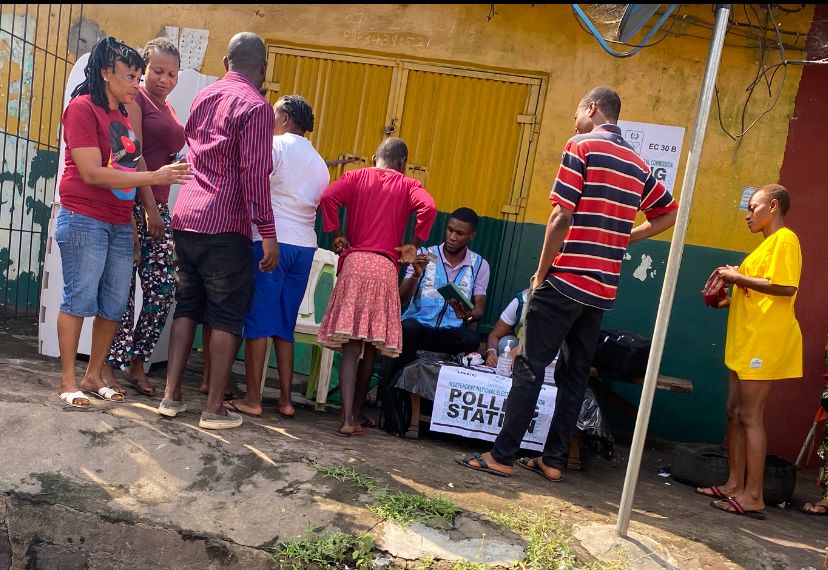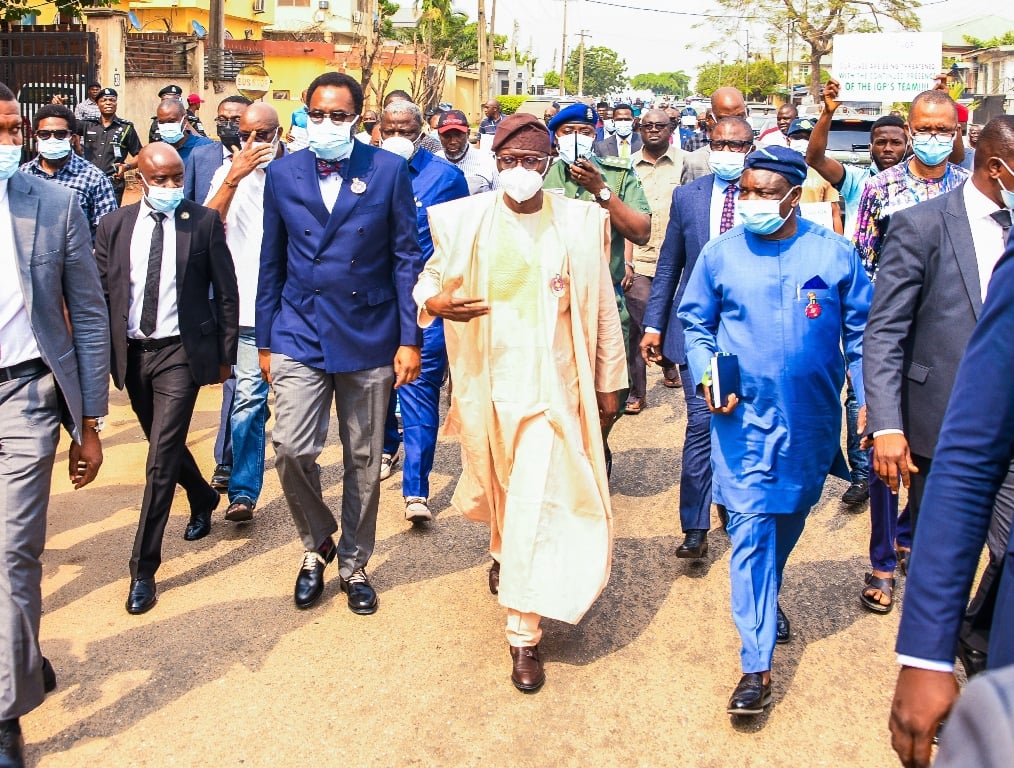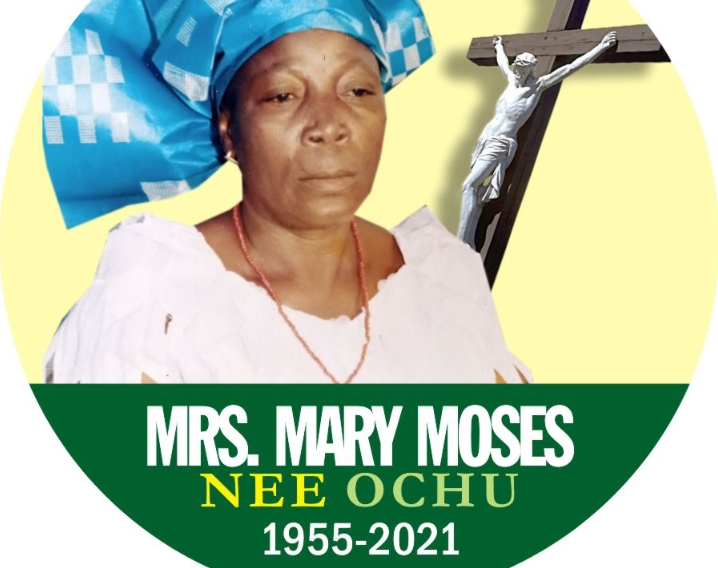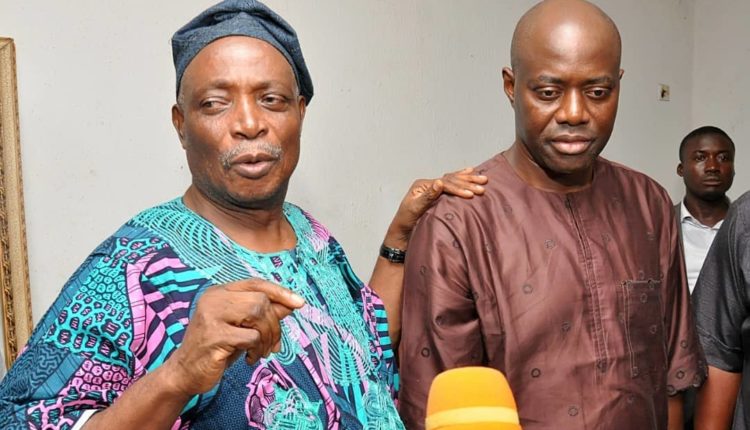BY AYODELE ARISE
The mindset of almost everyone in the national assembly as senators and honorable members of the house is that they must make laws for every state and situation in the federation. In contrast, we are supposed to be running a federal system of government with its attendant distribution or decentralisation of power as a critical element. However, as poor as the implementation of the federal system may be in Nigeria, we need to periodically remind ourselves that running this country should not be a ‘one jacket fits all’ affair. Such thinking will be antithetical to our population’s inherent heterogeneity, which further contradicts the spirit and letter of the presidential system of government.
By withholding assent to the amended electoral bill, President Muhammadu Buhari may have inadvertently put a break to the anomaly by advocating that a single system might not be the way to go when it comes to an electoral system in a federation. Therefore, it is imperative that options be made available to be used in our electoral process based on the preference and peculiarity of the states but not necessarily of a particular political party.
The framers of the 1999 constitution patterned it after the United States constitution, and our federal system of government is derived from there. There is no gainsaying that a constitution does not spell everything out in one document. That is why amendments are made from time to time, and extant laws are also made in conformity with the constitution to foster good governance. For example, one might not find any substantial details about elections in the United States constitution. Still, individual states have defined and fashioned the best ways to conduct elections with credible outcomes.
Advertisement
One of the most useful systems in the US that we need to consider and adopt quickly is the fact that political parties do not conduct elections to nominate candidates for elections. Instead, the independent electoral bodies conduct elections to elect candidates for the parties preparatory to the general elections. This is a critical aspect of our electoral system that must be reformed. In our peculiar case where we have INEC, it becomes imperative that the responsibility of conducting local and state elections, including primary elections, should be conducted by the electoral umpire.
Every politician is aware that when local council elections are conducted, the government in power in the state appoints the state electoral body. The officials are used to perpetrate fraud against the people because they make a mockery of the system. In that case, all the candidates presented by the ruling party win the offices under contest. This is no election but an abuse of power and flagrant disregard of the electoral process and democratic principle of free choice by the people. Unfortunately, we have all come to accept that as the norm. Kaduna state has moved a bit closer to civilisation and sanity through the use of electronic voting machines. Hence, some pockets of victory have been recorded in the state by the opposition party. INEC should now conduct every local or statewide election until we are able to refine and put in place a clear framework for selecting those who would run such sensitive organizations. The national assembly should as a matter of urgency legislate and create state and local government independent electoral bodies.
It might interest you to know that judges’ position in the USA is by local and statewide elections. That is to ensure that the people get the judges they deserve without the system being strangulated or manipulated in favor of an undeserving candidate.
Advertisement
In the United States, the idea is that since a county chairman or state governor is expected to govern over the people in their respective domains, everyone with a voters’ card, votes during the primaries regardless of party affiliation. To this end, the primaries for the respective political parties are conducted the same day across the state or nation, depending on the election. This is another critical aspect that we must inculcate in our electoral process. Therefore, the reform of our electoral system must be tailored towards returning the power of choice to the people in its truest form. The power of coercion by state governors can be reduced to the barest minimum when the people take ownership of the electoral process.
The system recognizes the voters as the most crucial element in the political leadership recruitment process. It should be noted that the voter cannot cross over to vote for another party on the same day for the same primary election after voting for one party. The system is well encrypted or protected against double or multiple voting by a single voter. However, this does not prevent such voters from crossing over to vote for another party in subsequent elections.
This clearly shows why Obama defeated Clinton at their presidential primaries ditto Trump, an outsider in the Republic party when he participated in the Republican primaries. People decide who can and cannot be their governors or presidents from the primary levels. It goes without saying that the people have taken ownership of the entire electoral process. Even from the primaries of the political parties, the system is decided by the people. This could be adapted into our system to overhaul our leadership recruitment process.
Since INEC is the custodian of the voters’ card, we can quickly adopt this direct (open) system of primaries to ensure that we extricate our electoral system from the bondage and strangulation of state governors. This would create the much-desired level playing field for all aspirants to ventilate their aspirations without being shortchanged by the whims and caprices of one man. Again, a system where voters, regardless of political affiliation, are allowed to vote during primaries to elect or nominate candidates for political parties would curb the incessant cases of voter apathy and unending legal manipulation in our general elections.
Advertisement
Since the party lords would still require some influence in the process, The party can use a variant of selection or election methodology to streamline their candidates to three names who would be voted for, in each of the primaries. The idea of multiple candidates for the primaries removes the idea of absolute imposition of candidates. The idea of the total electorate selecting one candidate for each of the parties promotes grassroot democracy and almost totally removes the possibility of bad candidates becoming chief executives of the states or local councils.
There are other variances of primary elections in the United States, and individual states adopt anyone that is most suited to achieve a credible electoral outcome. That is entirely different from our system, where a single system is expected to permeate the whole political process to nominate candidates for the general elections. We need to appreciate a primary election as a mechanism used to determine candidates in advance for a general election. It is actually meant to streamline or narrow the field of nominees of political parties for a given elective contest.
As earlier mentioned, primary elections can take different forms, such as the open primary, closed primary, semi-closed primary, top-two primary, top-four primary, blanket primary, etc. However, we shall restrict ourselves to the first four types of primary elections in this discourse.
As practiced in the United States, the open (direct) primary election connotes a system where people with voters’ cards are allowed to vote during primaries regardless of their political party affiliation. In that case, an open (direct) primary is any primary election in which a voter either does not have to formally affiliate with a political party in order to vote in it’s primary or can declare their affiliation with a party at the polls on the day of the primary even if the voter was previously affiliated with a different party. Currently, in the United States, in 21 states, at least one political party conducts open primaries for congressional and state-level offices. It has been result-oriented.
Advertisement
On the other hand, a closed (indirect) primary is a type of primary election in which a voter must affiliate formally with a political party in advance of the election date in order to participate in that party’s primary. Presently in the United States, records show that in 14 states and the District of Columbia, at least one political party conducts closed (indirect) primaries for congressional and state-level offices. In the Nigerian context, the closed primary seems to be what is prevalent with the variances of direct and indirect primaries, which have become contentious in recent times.
From the foregoing, the reform of our electoral process should be mindful of diversity at the state levels. At the national level, the direct (open) primary could suffice. In contrast, depending on the preference of individual states at the sub-national level, we should capture any of the variances of direct (open) primary or indirect (closed) primary in our electoral reform. We must do away with the selection mentality in our electoral system.
Advertisement
Arise represented Ekiti north senatorial district in the 6th senate. He writes from Abuja, Nigeria’s federal capital territory
Advertisement
Views expressed by contributors are strictly personal and not of TheCable.






